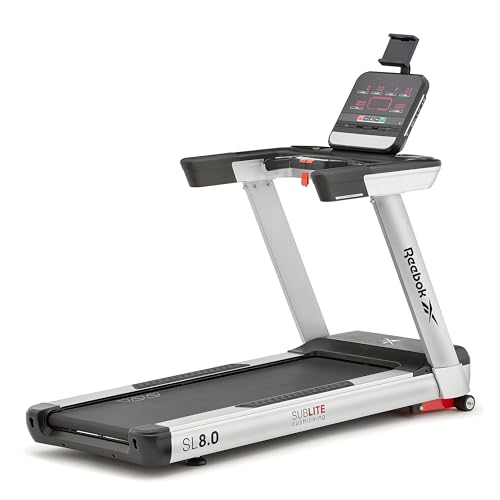What Is A Manual Treadmill?
In today's hectic world, integrating physical fitness into day-to-day routines has ended up being important. Among the myriad of exercise equipment available, the manual treadmill sticks out for its simplicity, efficiency, and price. This article looks into what a manual treadmill is, its advantages, and how it compares to its motorized counterpart. We will also address some frequently asked concerns to help you make an educated decision about including a manual treadmill to your home gym.
What is a Manual Treadmill?
A manual treadmill, unlike a motorized version, is a self-powered machine that needs users to create their own momentum. This suggests that the belt moves only when the user strolls, jogs, or works on the machine. Manual treadmills are typically light-weight and portable, making them an appropriate choice for home exercises, particularly for those with minimal area.
Key Features of a Manual Treadmill
| Function | Description |
|---|---|
| Source of power | Powered by the user's movement; no electricity required. |
| Weight and Size | Typically lighter and compact, permitting simple storage and portability. |
| Expense | Normally more inexpensive compared to motorized treadmills, making them accessible for budget-conscious consumers. |
| Adjustability | Frequently includes adjustable incline settings to increase exercise intensity. |
| Sturdiness | Developed with less electronic components, resulting in lower danger of malfunctions and breakdowns. |
| Workout Variety | Permits different workout modalities, including walking, jogging, and sprinting, while supplying resistance training through manual effort. |
Benefits of a Manual Treadmill
Manual treadmills included a number of distinct advantages, appealing to a wide variety of physical fitness enthusiasts. Here are some essential advantages:
1. Cost-Effectiveness
Manual treadmills are normally much less pricey than their motorized counterparts. This affordability makes them an attractive option for those wanting to invest in fitness devices without breaking the bank.
2. Space-Saving Design
Lots of manual treadmills are designed to be compact and lightweight, easily fitting into little home or home gyms. Their foldable styles also contribute to their space-saving abilities.
3. Improved Walking Form
Since the user controls the treadmill, they can naturally adjust their walking or running gait. This self-regulation can assist improve overall type, minimize injury threats, and boost muscle engagement.
4. Strength Training
Using a manual treadmill needs more effort from the user, causing increased calorie burn and better muscle strength gradually. Greater resistance settings can also promote cardiovascular endurance.
5. Flexibility
Users can change exercise strength by increasing speed or incline, enabling a variety of workouts from leisurely strolls to high-intensity intervals. This versatility keeps exercises fresh and engaging.
6. Eco-Friendly
Manual treadmills do not require electricity, making them an eco-friendly alternative. They promote sustainability, particularly for those seeking to lower their carbon footprint.
Manual vs. Motorized Treadmill
While both manual and motorized treadmills have their own sets of benefits, they accommodate various needs. Below is a contrast table outlining their crucial differences:
| Aspect | Manual Treadmill | Motorized Treadmill |
|---|---|---|
| Power Source | User-generated | Electric |
| Expense | Typically cheaper | More costly |
| Space Requirements | Compact and frequently foldable | Larger, more fixed |
| User Control | Controls speed and momentum | Set speed, user changes incline |
| Constant Resistance | Varies based upon user effort | Consistent resistance |
| Maintenance | Generally lower upkeep | Requires more upkeep and prospective repair work |
In summary, a manual treadmill is a feasible option for those seeking an efficient and affordable exercise option. This self-powered equipment provides various advantages, including expense savings, portability, and a versatile workout experience. Offered Manual Walking Machine growing appeal, lots of individuals are now choosing manual treadmills as part of their fitness routines.
FAQ About Manual Treadmills
1. Do I require to be a knowledgeable runner to use a manual treadmill?
No, manual treadmills are suitable for all fitness levels. Beginners might start with walking and slowly progress to running as they build self-confidence and strength.
2. Can I find a manual treadmill with adjustable incline?
Yes, lots of manual treadmills come equipped with adjustable inclines, permitting users to increase workout intensity as needed.
3. Just how much area do I require for a manual treadmill?
The size requirements vary, however many manual treadmills are designed to be compact and can typically be saved in little areas. Normally, a space of about 6 feet long and 2 feet broad should be enough.
4. How can I securely use a manual treadmill?
To use a manual treadmill safely, make sure that it is on a flat surface area, maintain appropriate posture while walking or running, and start at a sluggish speed to get comfy with the devices before increasing speed.
5. What kind of upkeep does a manual treadmill require?
Manual treadmills require minimal maintenance compared to motorized ones. Regular cleaning and looking for wear and tear will keep them in excellent condition.
6. Can I drop weight using a manual treadmill?
Yes, using a manual treadmill can assist with weight loss, as it burns calories through physical activity. Integrating constant sessions with a balanced diet can help achieve weight reduction objectives.
In conclusion, whether one is aiming to supplement their outdoor runs or looking for a practical indoor exercise service, a manual treadmill uses an effective way to remain fit. By understanding its functions and benefits, people can make an informed option that matches their physical fitness lifestyle.

